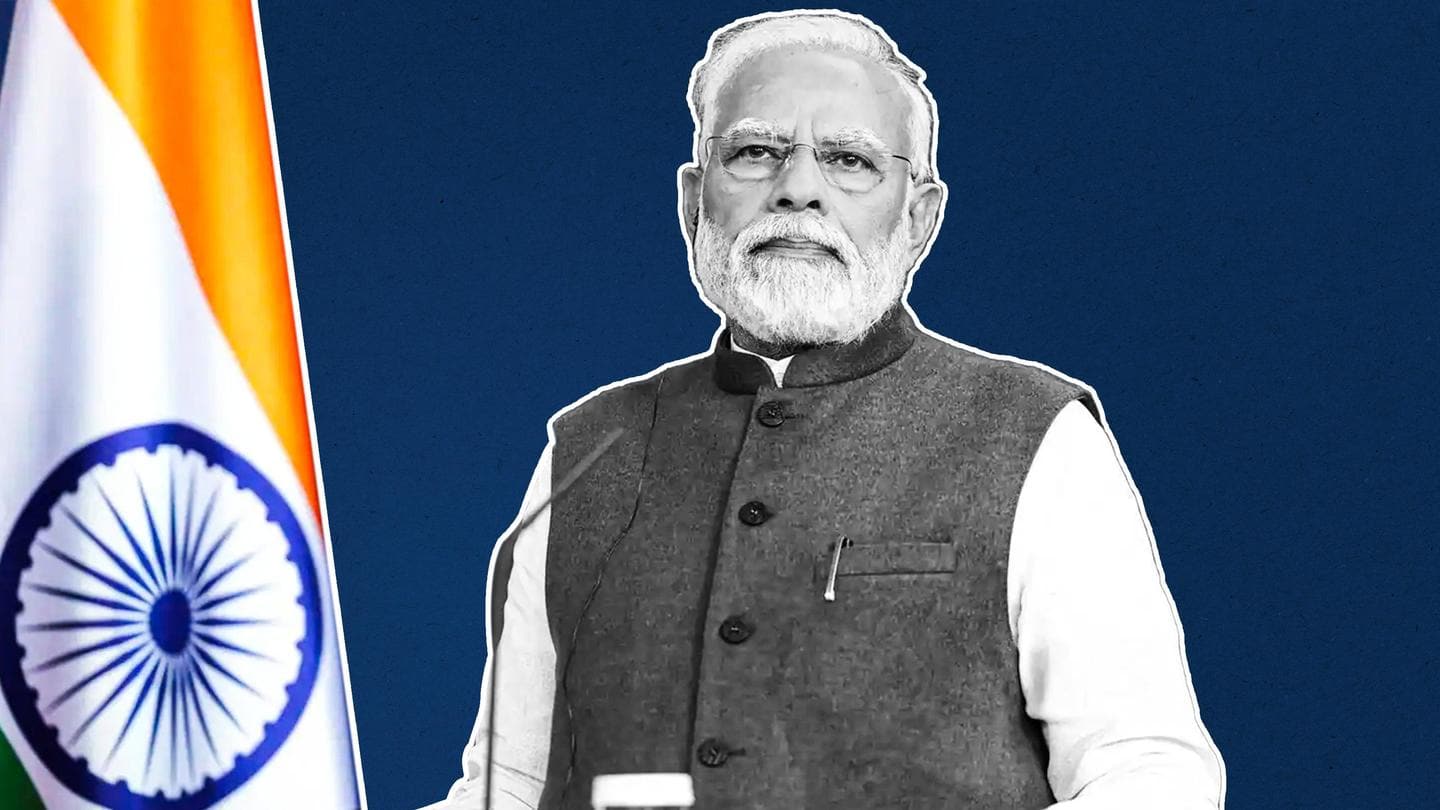
PM Modi to chair meetings on heatwave, monsoon
What's the story
Prime Minister Narendra Modi is expected to chair a series of meetings in Delhi after returning from his Europe visit.
The major goals for the engagements are to establish ways to combat increasing temperatures and prepare for the country's forthcoming monsoon season.
Many states have seen record-breaking temperatures as a result of the scorching heat, which scientists attribute to climate change.
Context
Why does this story matter?
Climate change was one of the top agendas during PM Modi's Europe tour.
The country has been facing witnessing extremely high temperatures amid heatwave conditions.
This year, the national capital Delhi witnessed the second hottest April in 72 years.
According to the Council on Energy, Environment, and Water (CEEW), IMD's heatwave alerts reflect the consequences of recent climatic changes.
PM Modi
India's commitment toward reducing carbon emissions
According to NDTV, PM Modi is expected to preside over eight meetings regarding increasing temperatures and the approaching monsoon during the day.
Modi had issued a scathing warning last week about rising temperatures and the increased incidence of fires in landfills, garbage dumps, and forests.
Notably, at the Glasgow Summit in November 2021, India had committed to reaching net-zero carbon emissions by 2070.
Quote
We are tackling climate change in a direct way: Modi
"We are also tackling climate change in a very direct way. That is why, at Conference of Parties (COP)-26 we have committed to attain 'Net Zero' by 2070, in parallel with our developmental efforts," PM Modi said at the International Conference on Disaster Resilient Infrastructure.
Temperature
Temperature expected to cross 50 °C in North India: IMD
Last week, the India Meteorological Department (IMD) said that the average maximum temperature in the northwest and central India in April was the highest in the last 122 years.
Notably, the IMD has been recording weather data since 1901.
Meanwhile, the temperatures in north India may exceed 50 °C in May since it has conventionally been the hottest month, the IMD had stated.
Climate Change
Rampant change in India's landscape
According to CEEW, Indian districts' landscape attributes (tree cover, forest coves, wetlands, and mangroves, among others) have changed by 45%, causing such extreme weather conditions.
"Rapid deployment of nature-based solutions can mitigate the impact of climatic extremities. They also pay a double dividend of enhancing resilience by generating socio-economic and environmental benefits that can climate-proof lives and livelihoods," a CEEW scientist had asserted.